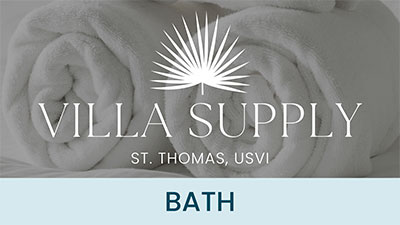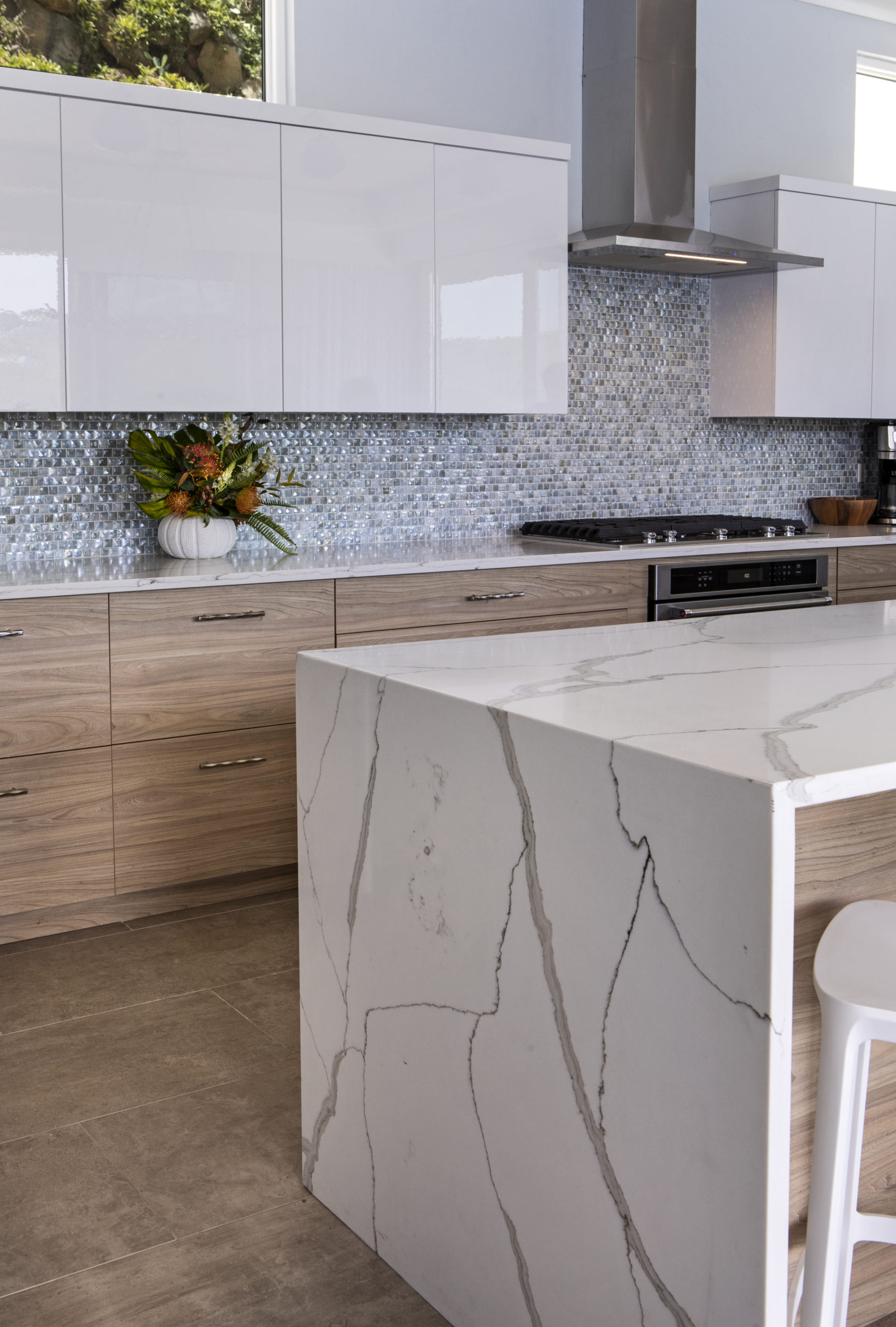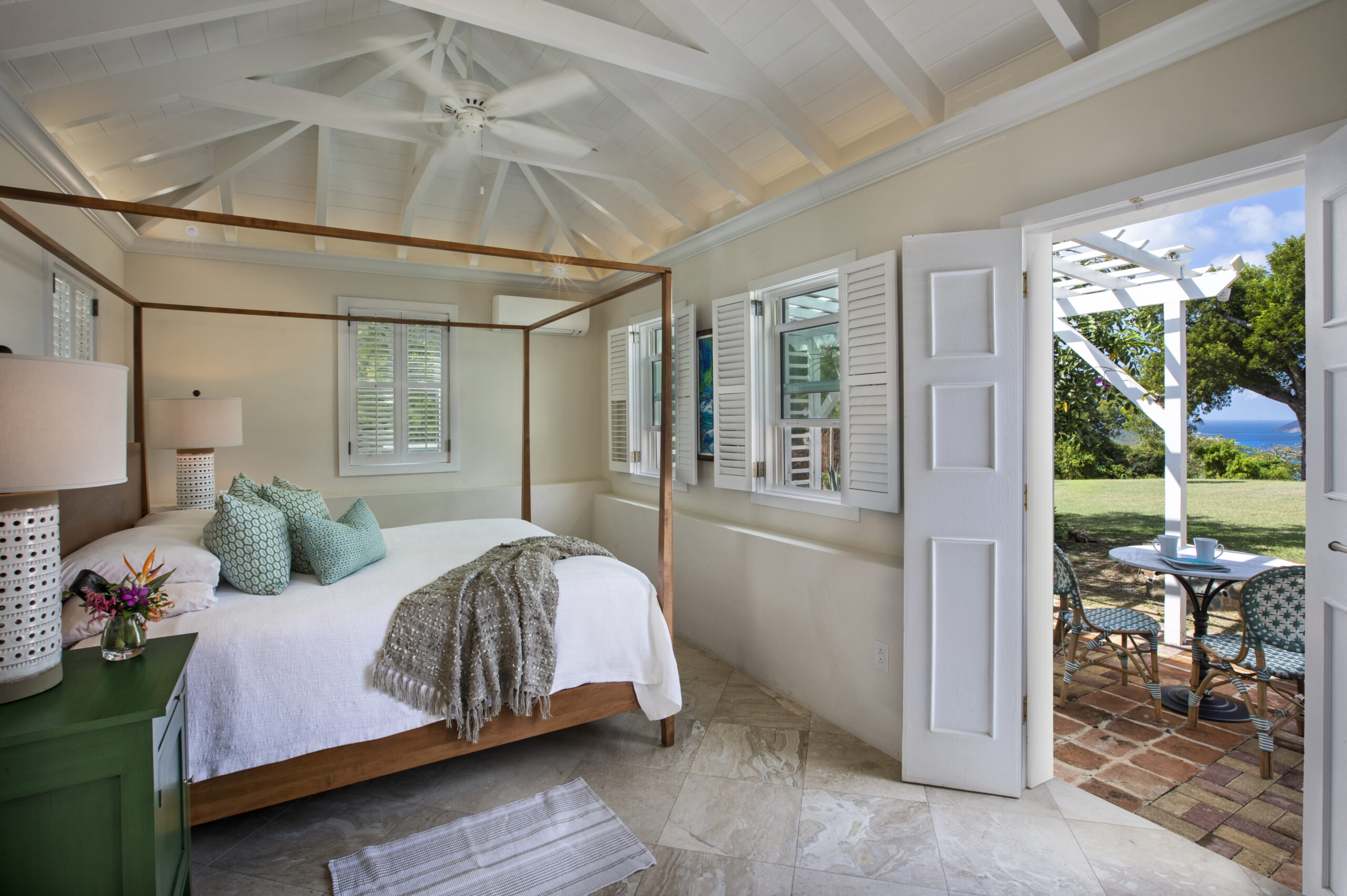A few good friends of ours recently went through the process of selecting countertops for their new home and asked for my input. It got me thinking about other homeowners who tackle countertops without a clue on where to start! There are many options outside of the standard granite look that can elevate your home and match your family’s needs. We’ve put together a guide to help you find the perfect fit.
Most of the choices we make in design are a balancing act between form, function, and cost. Before you start shopping, it’s important to determine your priorities and budget. Countertops are a key kitchen feature and can be a significant investment, so why not weigh all the options before making a decision? We’re here to guide you through 10 substrates of countertops to help you make the right selection for your kitchen!
We’ve ranked several countertop materials in three categories: Durability, Maintenance, and Cost. A ranking of 1 indicates low maintenance, durability, or price. A ranking of 5 indicates high maintenance, durability, or price.
1. Quartz
A man-made material like quartz has the benefit of consistency in colors and patterns. Quartz countertops come in a wider variety of colors than most natural stones, with a rich finish that is impossible to achieve naturally. They are also heat-resistant, but we still recommend using heat pads when possible to avoid heat damage.
This material is non-porous, which will protect your countertops from stains and bacteria. It’s also as durable as concrete or granite but is more forgiving, which means fewer possible chips or cracks in the surface.
Cambria USA is one of our favorite vendors for lovely and palatable quartz designs.
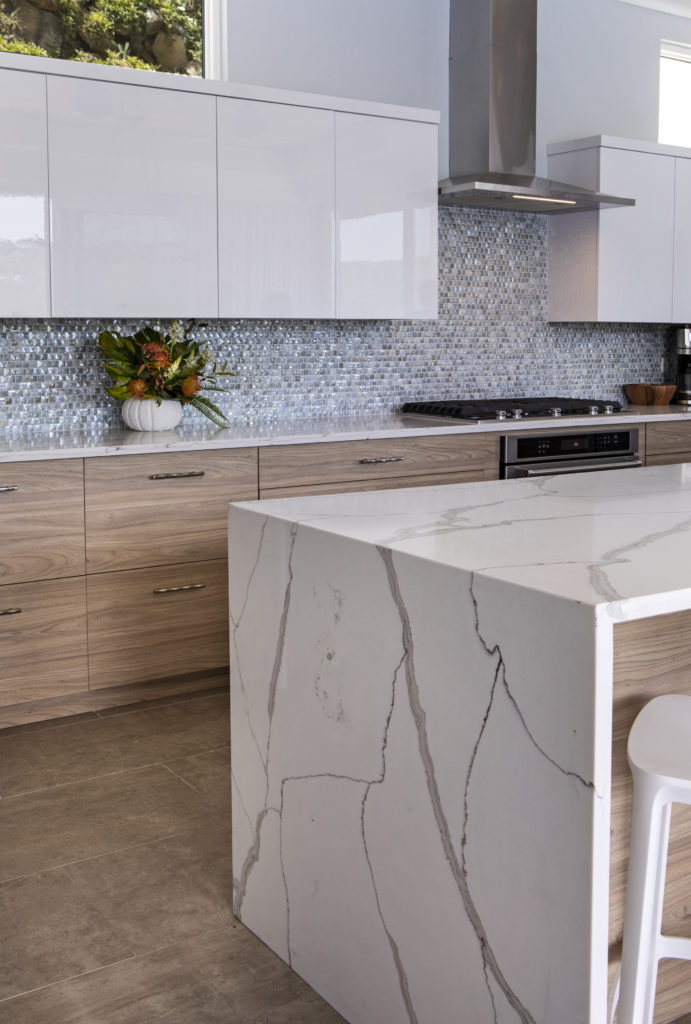
2. Quartzite
Not to be confused with quartz, quartzite is a naturally occurring stone with a higher degree of variability in pattern. One of quartzite’s biggest selling points is that it has a similar design and aesthetic to white marble, but it is cheaper and easier to maintain. White and grey are the most common shades, but some blue and green hues are familiar options as well.Quartzite is a hard stone, but knives will still leave a mark on the surface, so we recommend using a cutting board.
Quartzite is resistant to UV rays, so natural light or outdoor use won’t cause fading. However, this is not a stone that can handle high heat, so pads or trivets are recommended. Cleaning is also relatively easy. Soap and warm water will do the trick, but quartzite is porous, so spills need to be cleaned up quickly to avoid staining. This also means sealing the stone at least once a year, and in some cases, more often.
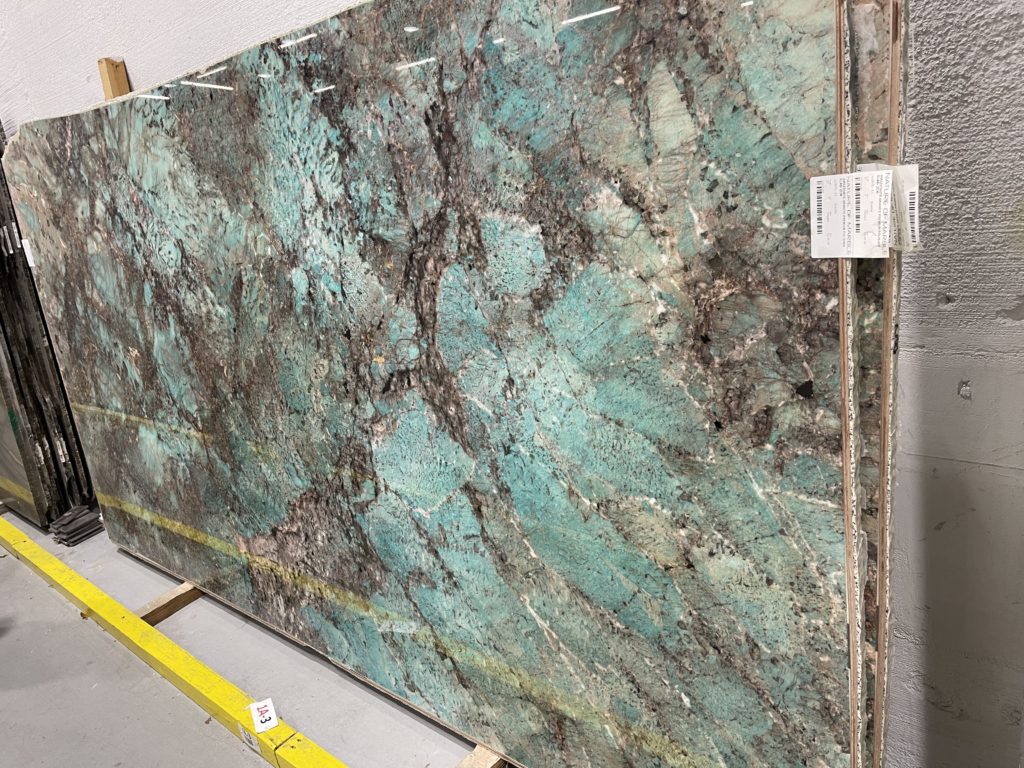
3. Granite
A naturally occurring material with an intensive manufacturing process, granite is not the most environmentally friendly option; however, by preserving the stone and ensuring that it will last in your home, you can avoid having to dispose of it prematurely. This material comes in a wide range of patterns and colors, though the most affordable options are generally darker, earthy tones. These countertops last a long time, so don’t be afraid to get exactly what you want!
For maintenance, granite is heat and scratch-resistant and can be easily cleaned with soap and warm water. While this is a relatively hard stone, hitting it in just the right way could result in chips or cracks that need to be repaired professionally. The stone is porous and will likely require a sealer at the time of installation; however, granite is very low-maintenance and likely won’t need another sealer for more than a decade. Some darker granites don’t require a sealer at all!
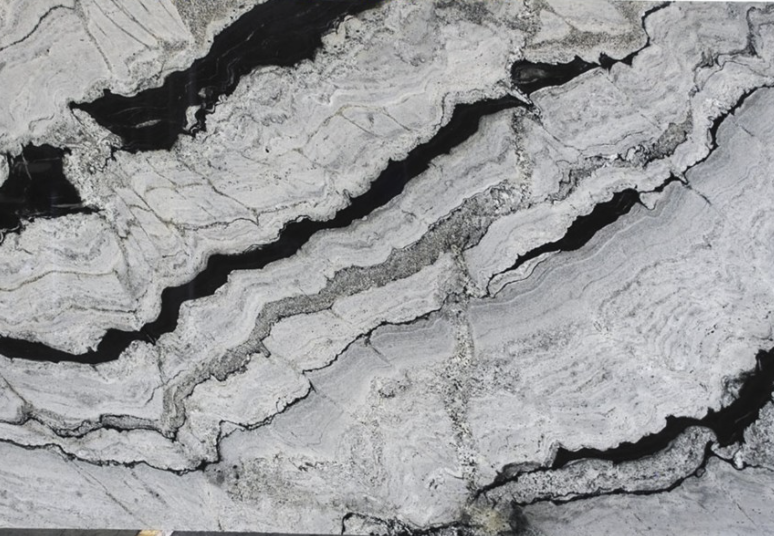
4. Marble
Marble is a gorgeous natural stone. The entire Calcutta family of marbles has been a bordering obsession for designers for the past few years, and for good reason. It’s beautiful, classic, and elegant. However, marble countertops require a certain amount of TLC that not every home can keep up with. This soft stone easily absorbs stains and is very susceptible to scratching, so butcher’s blocks and cutting boards are necessary. Sealer will need to be applied at least once and probably twice a year.
You should also expect some “patina” or greenish-yellow discoloration to form over time. This is a natural phenomenon that occurs in certain types of stone. Marble is highly heat resistant, but it’s a good idea to avoid direct contact with hot pots or pans.
If you think you can handle the yearly sealer and polishing in addition to daily cleaning, then this luxurious and sophisticated stone might be the one for you. Surprisingly, less exotic marbles are fairly cost-effective!
Marbleoftheworld.com is once again our default destination for variety in color, pattern, and price.
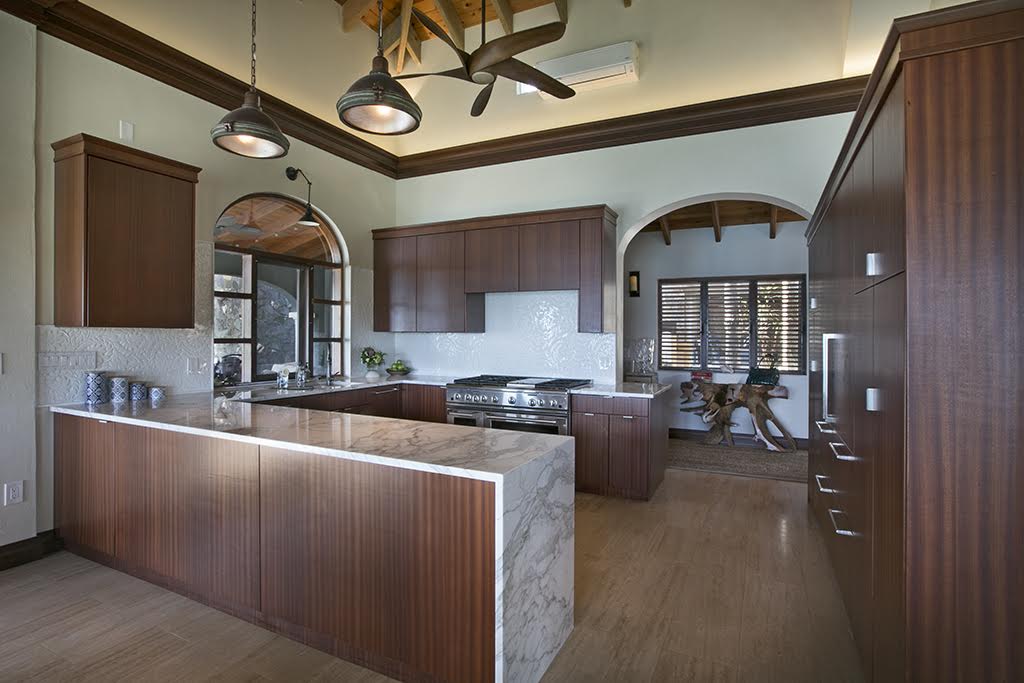
5. Corian
Corian, a man-made stone has become the Trex decking of the countertop world. If you like to DIY, this material is incredibly lightweight and easy to cut and shape like wood. It comes in dozens, if not hundreds of colors and patterns. It is not porous, so it prevents stains and bacteria like a hard stone. It does not require a sealer and is relatively affordable.
Because Corian is a slightly soft material, it is not safe to cut or place heat directly on. Burn dents and scratches can happen but are usually repairable. Certain cleaners or chemicals could cause discoloration, but generally, it’s an easy material to clean. Corian is a brand name, like Kleenex. Therefore, other companies produce a similar product, creating a market with huge variety.
Check out the brand’s full selection of colors, patterns, and designs at corian.com.
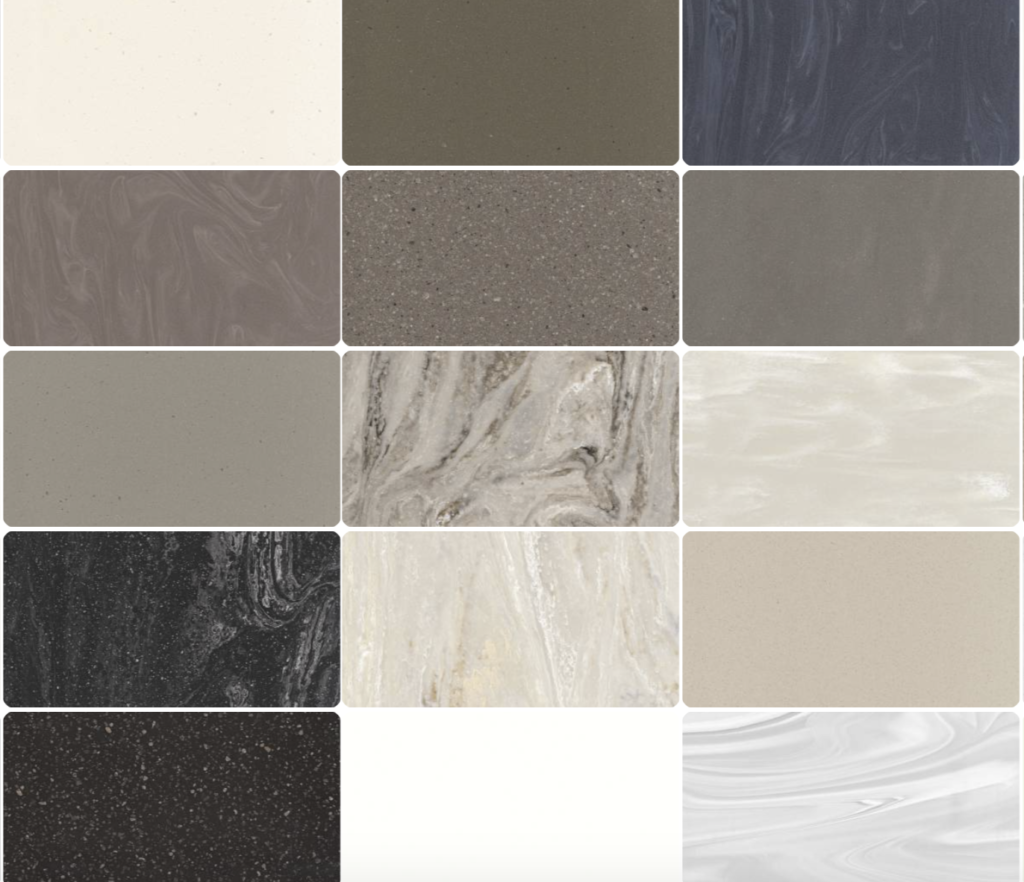
6. Laminate
Laminate may be a classic from the 70s and 80s, but it doesn’t have to be dated! Thin veneer-like layers glued on a plywood base make laminate a simple installation. While the surface of laminate is not as durable as solid rock, if you avoid cutting on it or placing hot items directly on top, it will last. Technology has improved to prevent delamination and extend the lifetime of the material.
Laminate countertops have a vast selection for color and style and are easily refreshed with soap and warm water. Harsh chemicals could damage the surface of the laminate, so try to avoid those if you choose this material.
We love laminate from Wilsonart because not only do they offer a wide range of products, but they create them from post-consumer recycled materials!
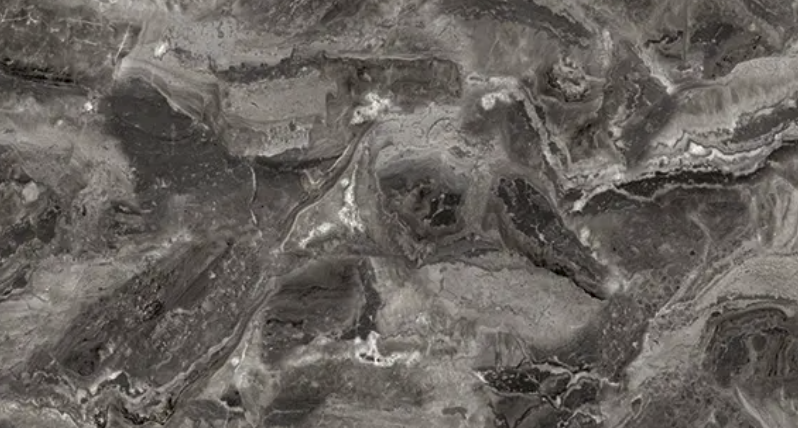
7. Butcher Block
Butcher block countertops can be styled to your preference, as there are dozens of wood types used to create a classic style that complements many homes. Affordable and easy to install, butcher block lasts about as long as granite countertops and longer than laminate. One concern is that wood does not always do well with water, and being a soft material, any spill that isn’t cleaned up quickly is likely to stain. The surface can be protected by sealer at installation and will likely need more sealer every 6-12 months.
Some people use their butcher block countertops as a cutting board; however, this can create space for bacteria and mold to grow in chips and scratches in the wood surface. Hot surfaces can also cause scorch marks. Luckily, butcher block countertops are easy to refinish! Simply sand out any blemishes and polish the surface with food-safe oil to get back that shine.
Floor & Decor offers a wide range of wood styles in various sizes and prices.
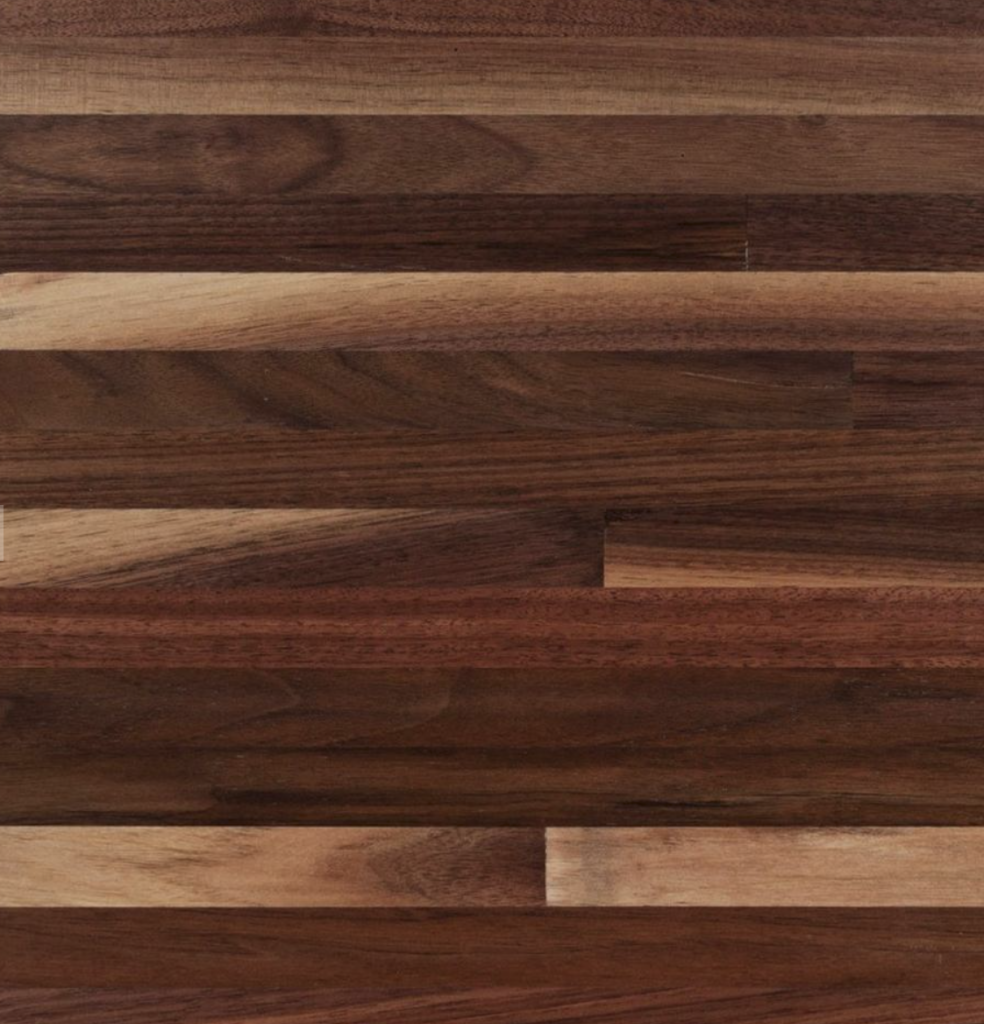
8. Tile
When it comes to tile, there are many options on the market. Our favorites are porcelain and ceramic. Porcelain tile has been popular in Europe for some time, and large format tiles are also beginning to pop up frequently in the US market. Porcelain tile is fired in a kiln at extremely high temperatures, creating a material that is not only as durable as solid rock but nearly impervious to heat, stains, UV rays, chips, scratches, and cracks.
Porcelain comes in a range of colors and patterns and is made from entirely renewable resources. The only real drawback is that patterns are surface level, so the plain porcelain will likely show through if chipped. The material is also cost-effective, but the logistics and installation can be a hassle. Once installed, however, porcelain countertops are designed to last.
We’re obsessed with the versatility of porcelain options offered by Daltile!

Ceramic tile can also be used to create gorgeous mosaics that add fun and personality to any space. It’s also a durable and environmentally friendly option for countertops, though grout lines do require extra cleaning. Ceramic tiles are starting to show up in larger format tiles, meaning fewer grout lines and seams to deal with. However, you’ll still need to pick up the perfect trim pieces to finish off your project!
Ceramic tiles are heat, scratch, and stain-resistant, though porous grout lines require regular sealing to avoid discoloration. Tiles can also chip if struck by something heavy or hard.
Creating mosaics can be an excellent DIY project, but they do require precise measurement, cutting, and specific tools to be correctly installed. If that’s not your cup of tea, professionals like the ones over at Daltile can help you out; they even offer a design tool to help you create a personalized look for your tile!
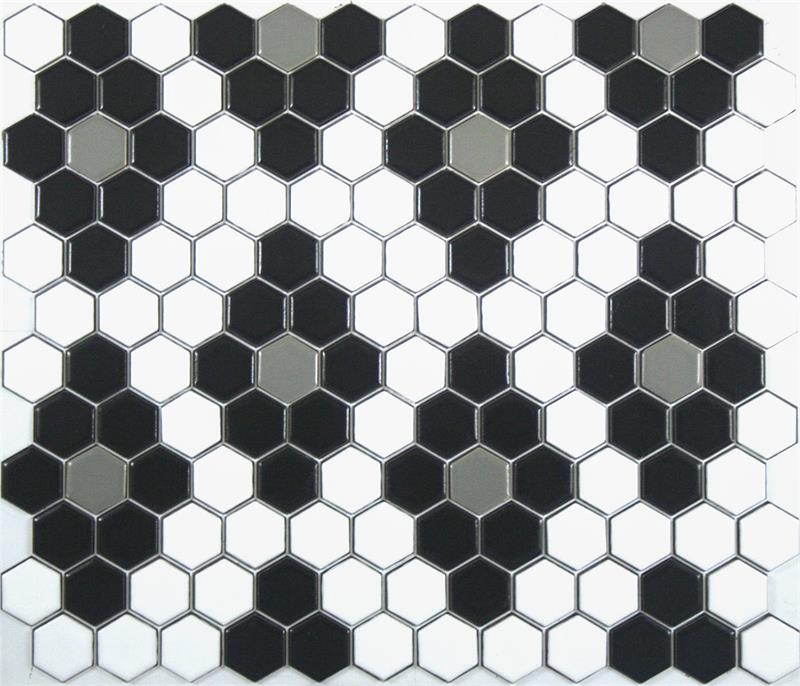
9. Stainless Steel
Stainless steel is not for everyone; what some see as a sleek, polished look can also come off as cold and clinical. If you do prefer the stainless look, be prepared to fight off scratches daily. Soft, microfiber cleaning cloths will help buff out marks and keep your counters sparkling.
Stainless steel can remain as good as new for many years if installed properly. The finish of the metal is customizable and can help avoid the corporate or clinical feel that sometimes comes with stainless kitchens. The metal used is likely 100% recyclable, making them yet another environmentally friendly countertop option. Impervious to heat and rust, scratches are the only damage concerns for this material. Installation for stainless steel is straightforward, and it is also DIY friendly!
Brooks Custom offers stainless steel products that range from countertops to backsplashes to furniture. With several finishing options, stainless could become the perfect touch for your kitchen space.
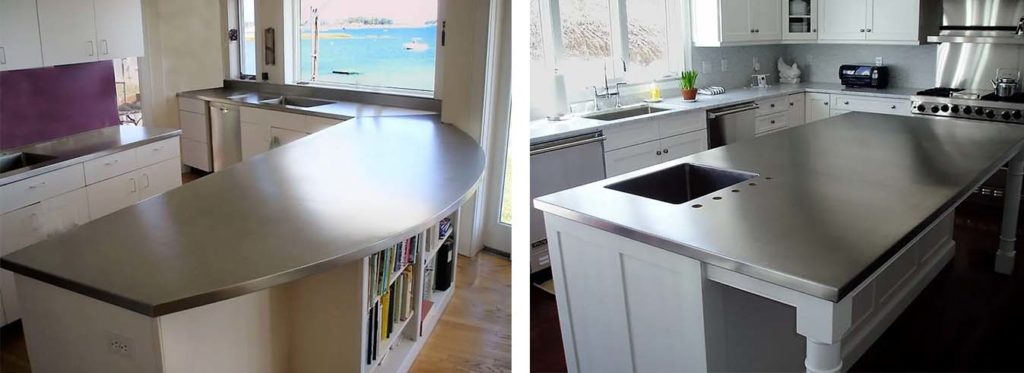
10. Concrete
Concrete countertops have been trending in the past few years, and it makes sense why. Concrete is easily customizable and can be pigmented, stained, and even embedded with shells or glass to create a beautiful piece of functional art in your home. It also has the benefit of being shaped to precisely match the dimensions of your space! Concrete is highly porous, so sealer is key to preventing stains. Expect sealing once at installation and then resealing every 1-3 years. Concrete is also very durable, long-lasting, and resistant to chips and scratches.
Surprisingly, concrete is considered a premium material, on-par with quartz or natural stone, so while it may increase the resale value of your home, the price point for concrete is high. It is also extremely heavy, which often means cabinets and flooring may need to be fortified in order to hold up a slab.
We’ve fallen in love with the Pacifica collection from Concrete Collaborative, a great example of just how beautiful concrete can be!
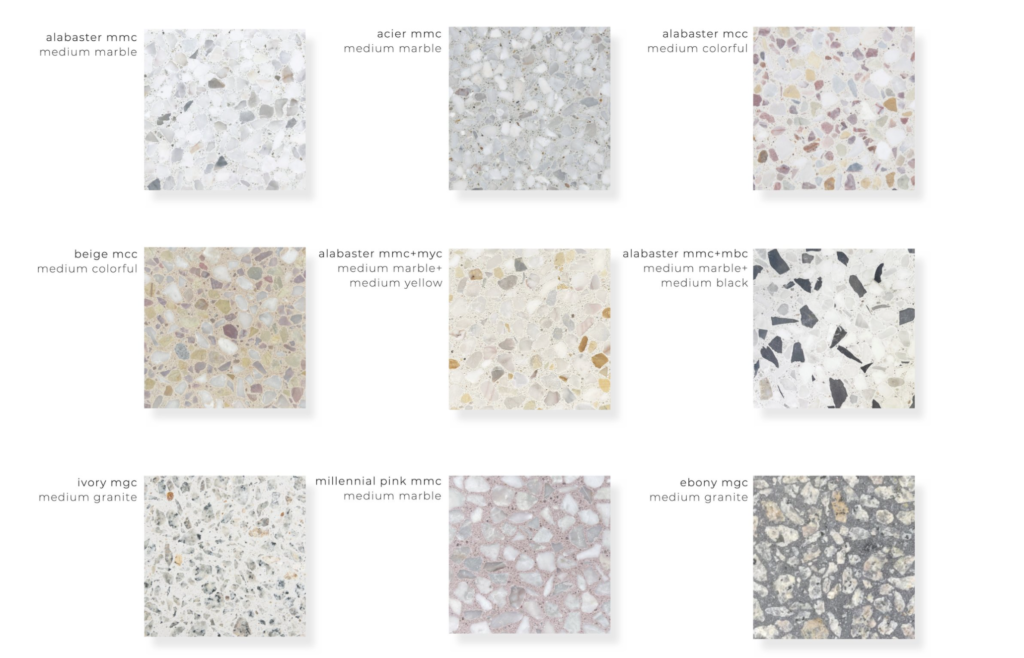
Countertops are a crucial part of your kitchen’s flow and navigating materials on the market can be a massive headache. We hope this guide helps you find what works best for your family’s needs!



